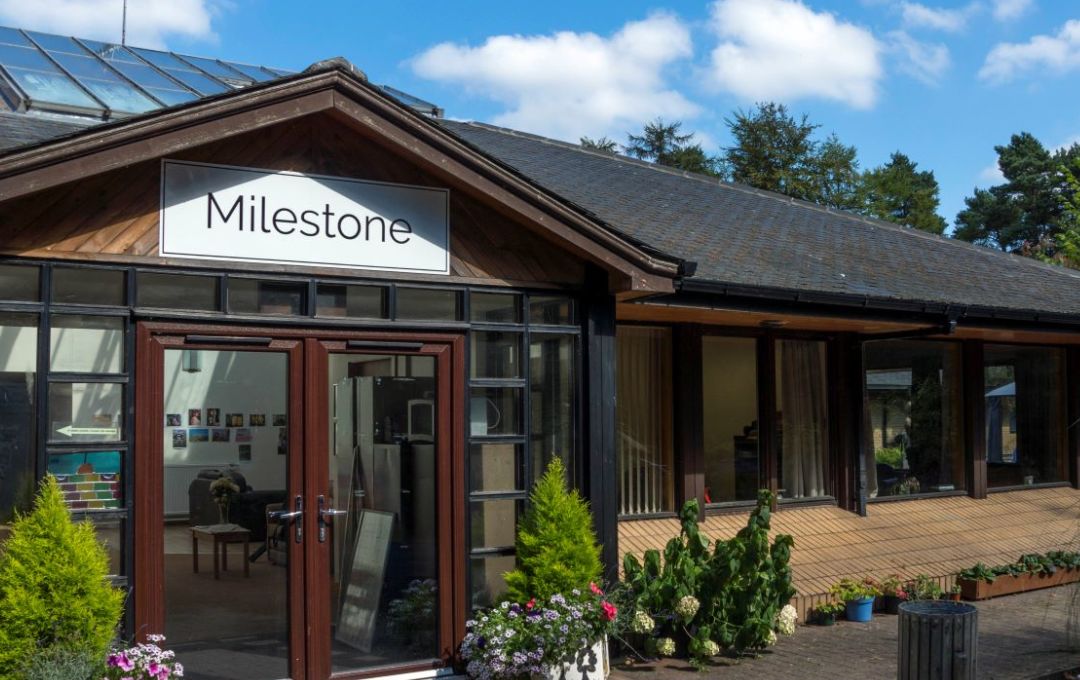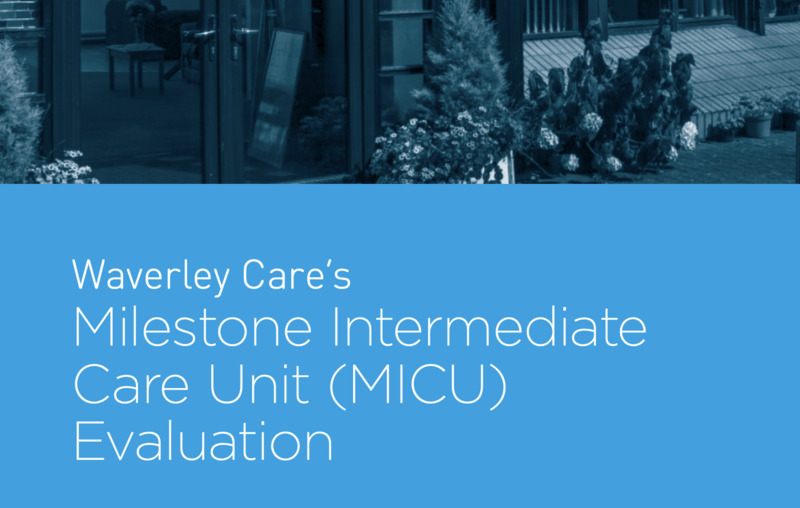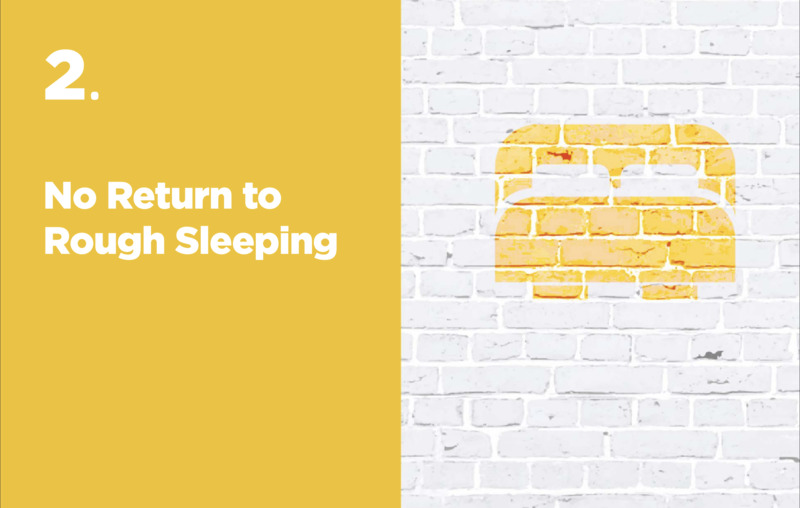Report shows ‘Life-Changing’ impact of Milestone project

Offering proactive support to patients who were facing discharge into homelessness makes a life-changing impact, according to a recent EVOC evaluation of the first year of work in the innovative Milestone residential Intermediate Care Unit.
Milestone House, based in Oxgangs, was founded by Waverley Care in 1991 as the UK’s first purpose-built AIDS hospice, but during the height of the Covid-19 pandemic, Waverley Care partnered with Cyrenians to open the Milestone Intermediate Care Unit (MICU) in response to increased pressure for hospital beds.
This innovative approach is led by Cyrenians’ Hospital Inreach team and delivered by Waverley Care, with support from partners including the City of Edinburgh Council. It offers residential support to up to 10 patients at a time who are experiencing, or at risk of, homelessness in the days and weeks following discharge from inpatient care.
Set up for people leaving COVID-19 care, the service has since expanded to offer step-down care for patients with a variety of needs. It provides a 'no wrong door’ approach, where service users can access a wide range of services in one place, making sure patients are discharged in a planned and positive way. Integrated support to help provide supported, lasting access to ongoing mental and physical health care, housing support, addiction recovery, and more.
The MICU is the only service of its kind in Scotland, and has provided an excellent case study for integrated support for patients with complex needs moving forward. According to the recent EVOC evaluation;
"[Milestone] has a track record of achieving remarkable outcomes for those who use it.”
EVOC concludes that the Milestone project has contributed to reduced inpatient stays in acute hospital wards, decreased readmissions, and a range of improved clinical outcomes, and has allowed for continued care and treatment that would otherwise be impossible.
It has also made a measurable difference to the experience of homelessness. On admission, the majority of service users are either in temporary accomodation or of no fixed abode, but in 2020-21, over 4 in 5 of those left the MICU into sustainable accommodation, an incredible rate of success.
“[Milestone offers] somewhere you can properly rest, in peace and quiet. And time to really think, away from the chaos and constant stress of homelessness and addiction.” - Milestone patient
The EVOC evaluation found that the impacts of the Milestone project were vast and wide-reaching. In its first year alone, MICU support and services directly resulted in;
- Reducing the risk of drug deaths in vulnerable populations, with the MICU supporting 67 out of 80 individuals in their recovery from drug addiction, and connecting them to ongoing recovery support after they left Milestone House.
- Improving hospital efficiency, saving NHS Lothian over £150,000 and freeing up 240 days’ worth of acute inpatient beds.
- Increased opportunities for ongoing mental health care
- Success in guiding patients through treatment courses which usually have a high drop-off rate among high-rick communities, such as supporting 4 patients to complete a 12-week Hepatitis-C treatment course.

EVOC report: Evaluating Milestone House
While set up at a fast pace as an organic response to the pandemic, the service has filled a glaring gap in existing service provision, delivering an integrated multi-disciplinary service built on partnership to meet the needs of marginalised communities. Along with our wider Hospital Inreach work, Milestone House is an excellent example of how a holistic approach to support can help tackle issues of healthcare, homelessness, drug and alcohol use, and health inequality on a wide-reaching level.
“It kept me safe, gave me a chance for a fresh start.” -Milestone patient
Dr Gerry Mitchell, a Social Policy Researcher commissioned to carry out the evaluation, said:
“My research highlights that Milestone is a valuable example of a Covid innovation that now needs to be capitalised on and locked into future provision."
"It has a track record of delivering remarkable outcomes for those who use it.”
Several recommendations are outlined in the report to ensure the important work of the MICU can continue. Examples include ensuring services are person-centred and trauma-informed; using the MICU model of care to develop alternatives to attendance at A&E, minimising the need for hospital admission; and supporting access to residential beds to provide a place of safety for those who are at highest risk of drug overdose.
Bridie Ashrowan, Chief Executive of EVOC, said: “We were delighted to be commissioned by the Edinburgh Health & Social Care Partnership to deliver an evaluation of the impact of Milestone. The report that Dr Gerry Mitchell has produced, in collaboration with the Milestone Steering Group, illustrates the life-changing impact of a 'no wrong door’ approach that is person-centred and trauma informed. This is particularly clear in this feedback from someone who benefitted from a stay at Milestone…”
“‘I am leaving with so much hope and determination for the next chapter’.”
Read the full EVOC report on the first year of Milestone’s service here.
